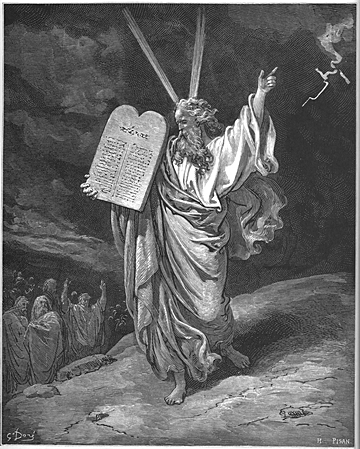2 Corinthians 3
1 Do we begin again to commend ourselves? Or do we need (as some do) epistles of commendation to you, or from you?
Àwa ha tún bẹ̀rẹ̀ láti máa yín ara wá bí? Tàbí àwa ha ń fẹ́ ìwé ìyìn sọ́dọ̀ yín, tàbí láti ọ̀dọ̀ yín gẹ́gẹ́ bí ẹlòmíràn tí ń ṣe?
2 You are our epistle, written in our hearts, which is known and read by all men:
Ẹ̀yin fúnra yín ni ìwé ìyìn wa, tí a ti kọ sí yín ní ọkàn, ti gbogbo ènìyàn mọ̀, tí wọ́n sì ń kà.
3 Being manifested, that you are the epistle of Christ, ministered by us, and written not with ink, but with the Spirit of the living God; not in tables of stone, but in the fleshly tables of the heart.
Ẹ̀yin sì ń fihàn pé ìwé tí a gbà sílẹ̀ láti ọ̀dọ̀ Kristi ni yín, kì í ṣe èyí tí a sì fi jẹ́lú kọ, bí kò sẹ Ẹ̀mí Ọlọ́run alààyè, kì í ṣe nínú wàláà òkúta bí kò ṣe nínú wàláà ọkàn ẹran.
4 And such confidence we have, through Christ, towards God.
Irú ìgbẹ́kẹ̀lé yìí ni àwa ní nípasẹ̀ Kristi sọ́dọ̀ Ọlọ́run,
5 Not that we are sufficient to think any thing of ourselves, as of ourselves: but our sufficiency is from God.
kì í ṣe pé àwa tó fún ara wa láti ṣírò ohunkóhun bí ẹni pé láti ọ̀dọ̀ àwa tìkára wa; ṣùgbọ́n láti ọ̀dọ̀ Ọlọ́run ní tító wà,
6 Who also hath made us fit ministers of the new testament, not in the letter, but in the spirit. For the letter killeth, but the spirit quickeneth.
Ẹni tí ó mú wa yẹ bí ìránṣẹ́ májẹ̀mú tuntun; kì í ṣe ní ti ìwé àkọsílẹ̀ ṣùgbọ́n ní ti ẹ̀mí, nítorí ìwé a máa pa ni, ṣùgbọ́n ẹ̀mí a máa sọ ní di ààyè.
7 Now if the ministration of death, engraven with letters upon stones, was glorious; so that the children of Israel could not steadfastly behold the face of Moses, for the glory of his countenance, which is made void:
Ṣùgbọ́n bí iṣẹ́ ìránṣẹ́ tí ikú, tí a tí kọ tí a sì ti gbẹ́ sí ara òkúta bá jẹ́ ológo tó bẹ́ẹ̀ tí àwọn ọmọ Israẹli kò lè tẹjúmọ́ wíwo ojú Mose nítorí ògo ojú rẹ̀ (ògo ti ń kọjá lọ);
8 How shall not the ministration of the spirit be rather in glory?
yóò ha ti rí tí iṣẹ́ ìránṣẹ́ ti ẹ̀mí kì yóò kúkú jẹ́ ògo jù?
9 For if the ministration of condemnation be glory, much more the ministration of justice aboundeth in glory.
Nítorí pé bi iṣẹ́ ìránṣẹ́ ìdálẹ́bi bá jẹ́ ológo, mélòó mélòó ni iṣẹ́ ìránṣẹ́ òdodo yóò tayọ jù ú ní ògo.
10 For even that which was glorious in this part was not glorified, by reason of the glory that excelleth.
Nítorí, èyí tí a tí ṣe lógo rí, kó lógo mọ́ báyìí, nítorí ògo tí ó tayọ.
11 For if that which is done away was glorious, much more that which remaineth is in glory.
Nítorí pé bí èyí ti ń kọjá lọ bá lógo, mélòó mélòó ni èyí tí ó dúró kí yóò ní ògo!
12 Having therefore such hope, we use much confidence:
Ǹjẹ́ nítorí náà bí a tí ní irú ìrètí bí èyí, àwa ń fi ìgboyà púpọ̀ sọ̀rọ̀.
13 And not as Moses put a veil upon his face, that the children of Israel might not steadfastly look on the face of that which is made void.
Kì í sì í ṣe bí Mose, ẹni tí ó fi ìbòjú bo ojú rẹ̀, ki àwọn ọmọ Israẹli má ba à lè tẹjúmọ́ wíwo òpin èyí tí ń kọjá lọ.
14 But their senses were made dull. For, until this present day, the selfsame veil, in the reading of the old testament, remaineth not taken away (because in Christ it is made void).
Ṣùgbọ́n ojú inú wọn fọ́; nítorí pé títí fi di òní olónìí nípa kíka májẹ̀mú láéláé, ìbòjú kan náà ṣì wà láìká kúrò; nítorí pé nínú Kristi ni a tí lè mú ìbòjú náà kúrò.
15 But even until this day, when Moses is read, the veil is upon their heart.
Ṣùgbọ́n títí di òní olónìí, nígbàkígbà ti a bá ń ka Mose, ìbòjú náà ń bẹ lọ́kàn wọn.
16 But when they shall be converted to the Lord, the veil shall be taken away.
Ṣùgbọ́n nígbà ti òun bá yípadà sí Olúwa, a ó mú ìbòjú náà kúrò.
17 Now the Lord is a Spirit. And where the Spirit of the Lord is, there is liberty.
Ǹjẹ́ Olúwa ni Ẹ̀mí náà: níbi tí Ẹ̀mí Olúwa bá sì wà, níbẹ̀ ni òmìnira gbé wà.
18 But we all beholding the glory of the Lord with open face, are transformed into the same image from glory to glory, as by the Spirit of the Lord.
Ṣùgbọ́n gbogbo wa ń wo ògo Olúwa láìsí ìbòjú bí ẹni pé nínú àwòjìji, a sì ń pa wa dà sí àwòrán kan náà láti ògo dé ògo, àní bí láti ọ̀dọ̀ Olúwa tí í ṣe Ẹ̀mí.





















